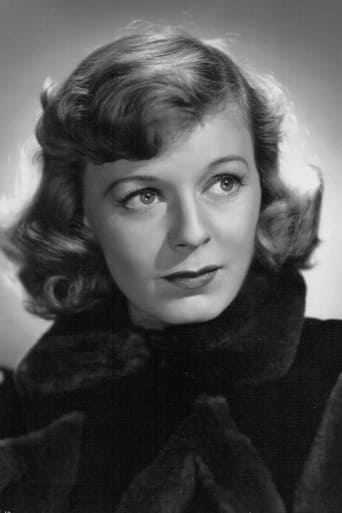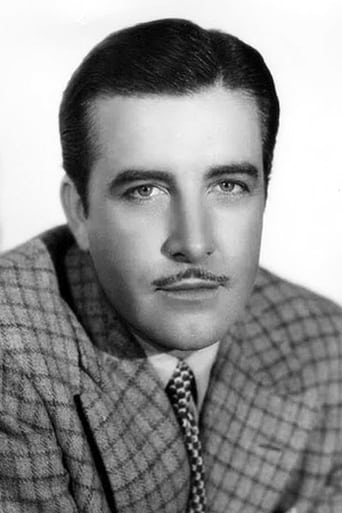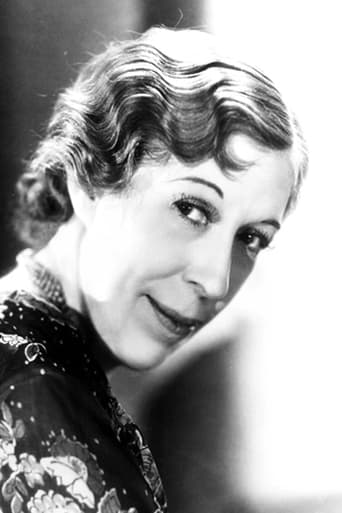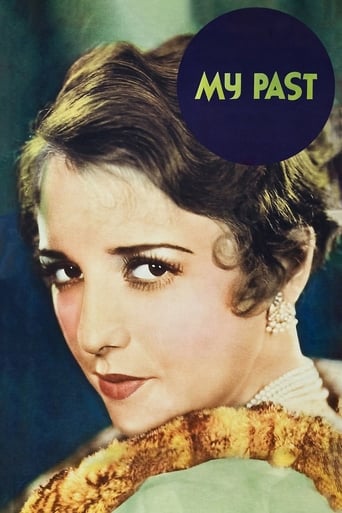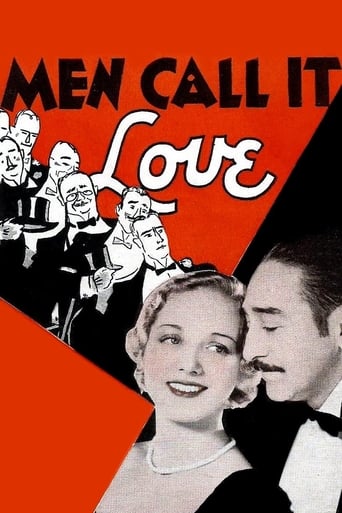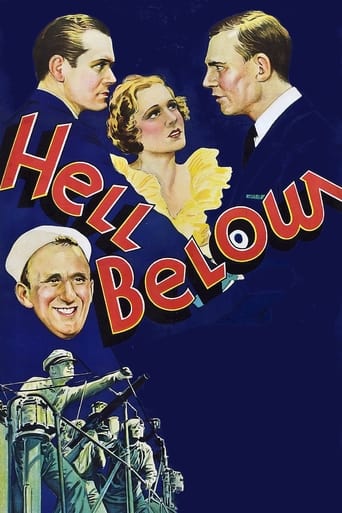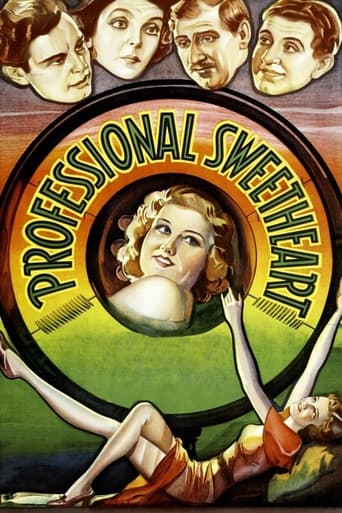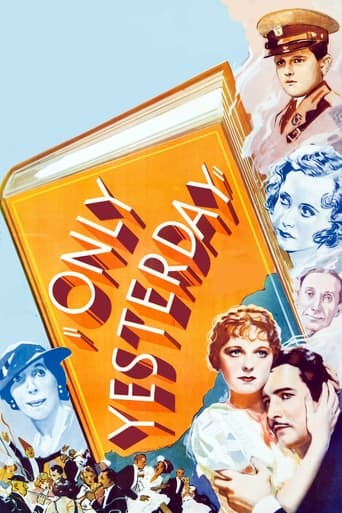
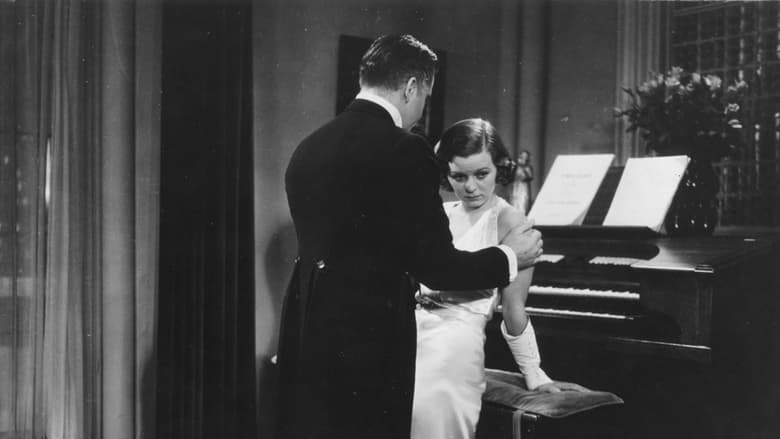
Only Yesterday (1933)
On the back of the Wall Street Crash of 1929, a young business man is about to commit suicide. With the note to his wife scribbled down and a gun in his hand, he notices a thick envelope addressed to him at the desk. As he begin to read, we're taken back to the days of WW1 and his meeting with a young woman named Mary Lane.
Watch Trailer
Cast


Similar titles
Reviews
This was the first film of Margaret Sullavan, then aged 24. As the story requires her to age by eleven years, she does that very well in the film. She only had 26 more years to live, as she died aged 50 in 1960, having made no more than 21 films. Despite this restricted ouevre, her vivacity, charm, warmth, and wonderful smile have rendered her memorable to all lovers of the history of the cinema. She was what is called today 'authentic', a real person rather than just a screen goddess. In 1931 she married Henry Fonda, and was later married to William Wyler. But a series of family tragedies, including the suicide of one of her children, meant that she had a breakdown and an early death by 'accidental barbiturate poisoning'. She was the mother-in-law of Peter Duchin the pianist, who is still very much around, and it is difficult to find 'anyone who is anyone' in Manhattan who has not met him and been enchanted by his playing. Another son-in-law was Dennis Hopper, who together with Peter Fonda revolutionised American films with the famous EASY RIDER in 1969. In this film, directed by John M. Stahl, Sullavan plays a romantic young girl who falls in love with John Boles in 1918, they intend to get married, and have a night together, and then he is sent off to war in Europe with only a few hours' notice, so that the marriage is postponed indefinitely. Meanwhile, she had become pregnant and has a son. The social disgrace is too great for her Southern family, and she moves to New York, where she lives from then on with her free-wheeling and more broad-minded aunt, played by Billie Burke. Reginald Denny, the British actor, surprisingly appears in this film and plays Billie Burke's male friend whom she eventually marries. I never saw him do better with humour and comic banter than in his scenes with Burke, which are very effective. John Boles is very good as the leading man, who for so much of the film is absent. In the story, he forgets about Sullavan, and when she meets him after a victory parade through the streets of Manhattan, he does not recognise her. He has no knowledge of her having had a son, and she is so hurt by his not knowing her, that she goes away. We then see a title which says: 'Ten years later' and the story resumes. The ten year-old son is played excellently by Jimmy Butler, who is a natural on screen, and this was also his first film. But he was to have a tragic early death at the age of only 23, just before the end of World War Two, as a soldier in France. The story of the film gets sadder and sadder, and I do not wish to ruin any viewer's experience by commenting upon the events which follow. The film shows 'true love which lasts through the years', a theme largely forgotten today, when partners and spouses are thrown away like rag dolls. Just think, love did once exist, before sex completely took over and love got pushed aside as no longer being relevant.
Failing to acknowledge the fact that the script is based on Stefan Zweig's "Letter from an unknown woman" notwithstanding, Stahl's "Only yesterday" is a jewel of a film.Beautifully written, directed and acted - it is refreshing to see how real films of the golden age of pre-Hayes Code could be. Absolutely no moral judgment is made of the unwed pregnancy of the character after her one night stand with the man she is fascinated with. Leaving Virginia and her crying mother behind for New York and her suffragette aunt (delightfully played by the talented and often typecast Billie Burke) who basically puts it down as a "biological occurrence", something to be lived through - something that happens. The film is full of little touches of real emotions and actions despite the heavy cinematic conventions of the era.A comparison with Max Ophuls' masterpiece "Letter from an unknown woman" (1948) is too thrilling to resist. In Stahl's more "realistic" version the character played by Margaret Sullavan goes from wide eyed ingénue to become the sophisticated witty Mary Lane - a woman who's been through it and kids herself no longer. Beffiting Ophuls' dark and moody amour foux fable - Liza Berndl (Joan Fontaine) though also going from naive to sophisticate (with some hints of prostitution) never gets over the romantic -almost neurotic- obsession with Stefan Brand (Louis Jourdan - the doomed don Giovanni of "Letter" as opposed to "Yesterday"'s regular Wall Street dilettante played by John Bole). Their reaction to a second chance with the object of their desire is as different as their characters...If you should come across this film in a midnight television screening or at your local cinemateque DO NOT MISS IT. Unfortunately you will not be able to find it in VHS or DVD. Time has been kinder to Ophuls' amazing film - if not quite fair either. Maybe one of these days the guys at the Criterion Collection will see to it...
This is a great film with an absolutely amazing script. While Margaret Sulivan has a tremendous break out performance, in my opinion it is John Boles as the philandering Jim and Billie Burke as the suffragist aunt that really make the film. John Boles in particular has some really great lines. My favorite line of the film was when the married Jim is trying to seduce Margaret on New Year's Eve and he takes her to his secret bachelor pad and tells Margaret that this is where he lives. Margaret says something like, `Strange it doesn't have a woman's touch.' And Jim replies that while he doesn't eat, sleep, or hang out with his family here, this is where he LIVES. Jim is just a pimp. While this film is difficult to see since they don't have it on video or show it on cable, it is really a must see movie for anyone interested in pre-code film. It is an absolutely wonderful movie.
***SPOILERS*** *SPOILERS*** ***SPOILERS*** Full bore melodrama!Everything you expect from the genre is here!You will cry a river,feel for the heroine and her little boy,Stahl was the prince of the melodrama during those days.This movie is a long flashback:It's black Thursday,the hive of activity is blighted,people are crazy,it's going all over the place.Posh people are throwing a party in a luxury flat:jewels,furs,champagne and caviar.They're dancing on a vulcano.Pretty soon,all of them will be broke.Among them ,a man who thought he got it made:he married a woman he does not love anymore,and now all what's left to him is suicide.But there's this letter.Then begins a journey through the past.A woman he forgot tells him about her life,after the evening of their love atr first sight,the only evening,only yesterday...Then ,the movie focuses on the heroine(touching Margaret Sullavan).He goes to war,she 's pregnant -it's not a shame anymore nowadays,her optimistic aunt tells her-.THe soldier's return scenes are perhaps the best ones in the whole movie.It seems that they may have influenced M.Kalatozov for "The cranes are flying".The parade on the street,with Sullavan trying to catch her lover's eye,her despair when he does not even recognize her are heart-wrenching.As often in melodrama (check "imitation of life" or "back street"),a woman without a man is nothing at all.So the only way left for her is the business one.And generally she succeeds (such is the case of the heroine of "imitation of life").So,Margaret Sullavan makes her way of life ,and becomes the owner of a very chic shop .We only steal a glance at it,the social elevation interests Stahl only because it will allow her heroine to enter her former lover's wealthy world.Her son,now a student in a military school,is what you call mother's pride.so she meets again the man,now married,but,again,he does not know her.Sullavan throw him a line,by telling him she was overjoyed twice in her lifetime,the second time this very evening."And the first time? " the clueless man whispers..She leaves..SPOILERS BEYOND THAT POINT*SPOILERS BEYOND THAT POINT Now we enter the heart of melodrama.No melodrama without a death,generally caused by a fatal illness.Poor Sullavan is about to die,and pretty damn quick.Harrowing last scene mother/son. Now we've gone full circle.Back in the present.The lover has finished his letter.He has understood his wife does not mean the slightest thing for him.He rushes to Sullavan's house,just to learn she 's dead.Then comes a very very strooooong scene.He meets the boy,they begin to speak,the boy shows his medals,and after a conversation about these foolish things that make a life worthwhile,the man says :"I am your father".End of the movie.Sublime!AND END OF SPOILER.END OF SPOILER.It's a pity that this film should be forgotten.Maybe "magnificent obsession" and" imitation of life" have taken advantage of Douglas Sirk's brilliant remakes.If you love these works,you will love "only yesterday " too.And not only yesterday or today but forever.


